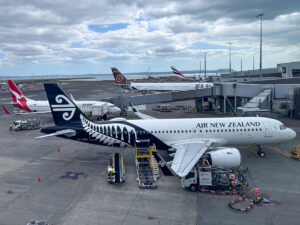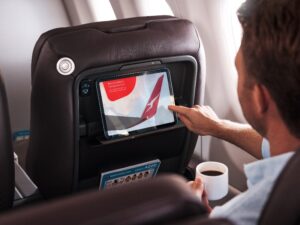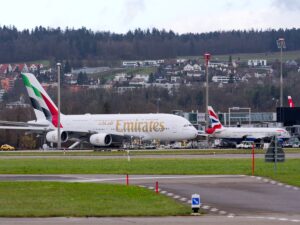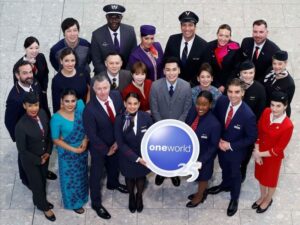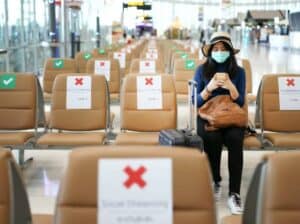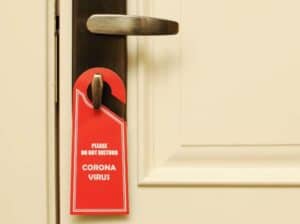
Since 22 January 2021, anyone flying to Australia from overseas is required to get a COVID-19 PCR test no more than 72 hours before their first flight’s departure (and produce a certificate showing a negative result). This is in addition to the 14 days of hotel quarantine on arrival in Australia.
“These [new measures] will be challenging for many people, and I am apologetic that we need to put in place these restrictions,” Australian health minister Greg Hunt said at the time.
In theory, pre-flight COVID-19 testing is a perfectly reasonable measure to further reduce the risk of returning travellers entering Australia while infected with the coronavirus. But there are unintended consequences which are adding significant burdens on stranded Australians who have already been struggling for months to get home.
Lack of testing availability
The most obvious issue is the limited availability of COVID-19 testing in some countries. While COVID-19 PCR tests are widely available in Australia, this is not the case all over the world. In addition, some countries are not able to reliably return test results within the 72-hour time frame set by the Australian government.
Acknowledging this, the Australian government has exempted travellers from 10 specific countries – Myanmar and some Pacific Island nations – from the pre-flight testing requirement. New Zealand is also exempt as arrivals from there are not required to quarantine in Australia (except when this arrangement is suspended whenever there is a COVID-19 outbreak in New Zealand).
Travellers from a further 12 countries may get tested up to 96 hours before departure due to limited access to PCR testing and slow turnaround times in those jurisdictions. These countries are Belize, Cook Islands, Federated States of Micronesia, Fiji, French Polynesia, Marshall Islands, Nauru, New Caledonia, Palau, Papua New Guinea, Timor-Leste & Wallis and Futuna.
These exemptions will be helpful to Australians in those specific places, but limited access to COVID-19 testing is not limited to those 22 specific countries.
Many Aussies paying for tests, then getting bumped from flights
That’s not the only problem. In most countries, people are required to pay anywhere between $50 and $200 (or even more in some places) for a pre-flight COVID-19 test. Even in countries where free testing is normally available for people with COVID-19 symptoms, there is usually a fee to get tested for the purpose of obtaining a travel certificate.
This is also the case in Australia, where people requiring a negative COVID-19 result certificate for the purpose of international travel would need to visit a private testing clinic – and generally pay at least $150 for the privilege.
This added cost and inconvenience wouldn’t be so much of a problem if travellers weren’t being regularly bumped off flights to Australia at short notice. Unfortunately, due to Australia’s strict international arrival caps, many would-be travellers are paying hundreds of dollars to get tested – only to then be told they won’t be able to fly on their scheduled departure date.
At the moment, many airlines are only finalising their passenger numbers for flights to Australia around 24-48 hours before departure. Many passengers aren’t even told they’ll be bumped off their flight until they try to check in or have arrived at the airport.
Some airlines will try to reacommodate bumped passengers on other flights – for example, on a flight the next day. But by the time that later flight is due to depart, it could be more than 72 hours since the traveller had a COVID-19 swab taken. This leaves the passenger footing yet another bill for a COVID-19 test – which could be even more time and money wasted if the airline changes their flight yet again.
I’ve spoken to Australians stuck overseas who’ve paid many hundreds of dollars for multiple COVID-19 tests, only to be bumped off each of their booked flights to Australia at the last minute. Getting a COVID-19 test doesn’t guarantee a seat on a flight, and there are no refunds for PCR tests taken if you get bumped off your flight.
For some Australians, the pre-flight COVID-19 testing requirement (combined with all the rest of the expense and uncertainty of trying to fly to Australia during COVID-19) has been the final straw and they’ve now given up trying to return home altogether.
Is the added burden worth the benefit of pre-flight testing?
This is not to say that pre-flight testing is not a good idea in principle. It’s another way to reduce the risk of importing coronavirus into Australia and potentially infecting other people during the journey. That’s a good thing.
But pre-flight testing also imposes an additional, significant burden on Australians already finding it extremely difficult and expensive to return home. And it’s not foolproof.
There is no guarantee that somebody who tests negative to COVID-19 before their flight will not test positive after arriving in Australia. In fact, we know that five people on the same Qantas flight tested positive to COVID-19 on their first day of quarantine in Howard Springs after arriving from Delhi last November. (Interestingly, authorities were already able to detect that at least one person with COVID-19 was on that flight by testing the sewage after arrival in Darwin.)
Unless they came from one of the few countries exempt from the testing requirement, each of the new overseas-acquired COVID-19 cases found in Australian hotel quarantine since the pre-flight tests were mandated on 22 January 2021 would have also tested negative for COVID-19 before they boarded their flight to Australia.
That’s why all returning travellers still need to quarantine for 14 days upon arrival anyway, even though they’ve received a negative test result (and even if they’ve also been fully vaccinated against COVID-19). Hotel quarantine remains the main measure to prevent the coronavirus from entering the Australian community.
